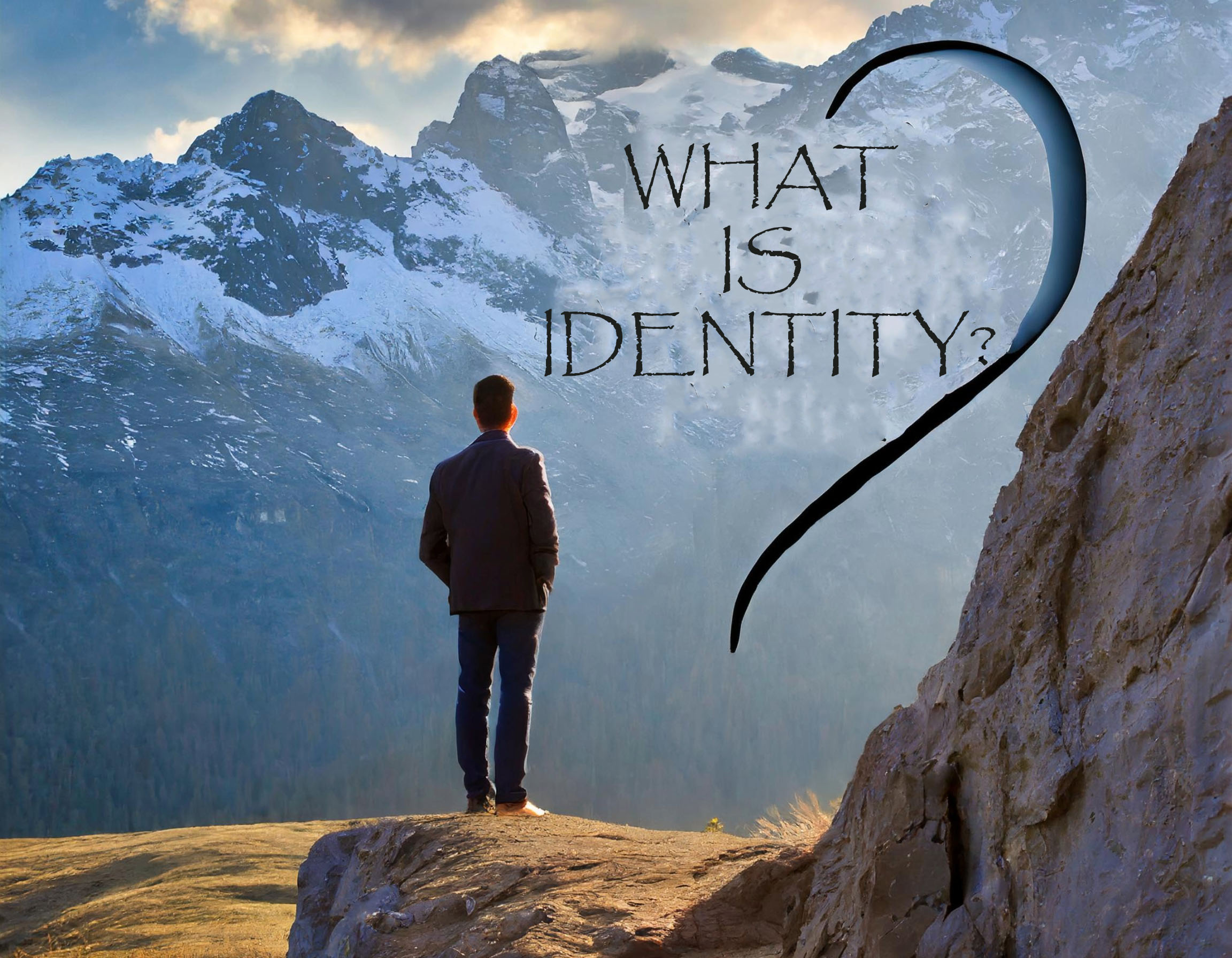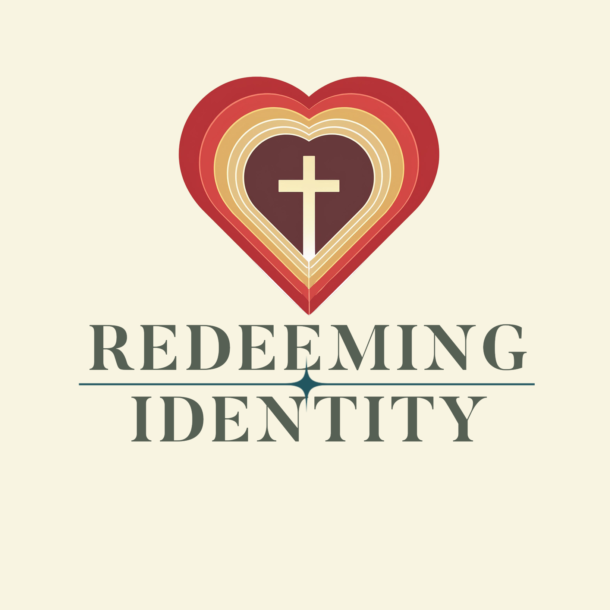Identity
Conversation #1
In posting articles and information on the website, we hoped we could start conversations related to various aspects of identity. Our first conversation started with an email from a friend that visited the website and had some questions. As a teacher, I learned a basic fact about questions, if one person asked one, there were likely others that had the same question, but did not ask it. So, if others that had the same question, they deserved an answer.
This question started the Identity Conversation series. In each entry, we share questions or comments shared by people and provide expanded responses. Although we respond to every email and comment, they will probably include additional information. As always, the hope is that this will be another part of the continuing conversation regarding our identity.
The Common Definition
There were several questions that were asked in those first emails, but the one that will start this conversation is “What is the definition of identity that we use?”
Definitions are very important. They are the building blocks on which all other meaning and understanding is built on. To establish a shared foundation of knowledge will help us in preventing misunderstandings or misuse of terms. Although the articles that we had posted communicated concepts about identity, they had not provided a clear singular definition for it. So, it was fitting that the first question asked was to provide a common definition of identity.
“Who are you?” is a common way to express the definition of identity. But when asked, there are many ways that we can answer this question. We answer this question using our occupation or by what we do. “I am a teacher.” “I am a student.” I volunteer at the local…” It is reasonable that we want to identify ourselves this way, since what we do is a major component of the general rhythms of our life.
Today, people also define themselves through their history or family of origin. There are several commercials that proclaim that you can better know who you are by knowing your past ancestry, either through genealogy or genetics. We may also define who we are through relationships, gender, education, past activities, both successes and failures, and personality to describe who we are.
Although these statements may be completely true and important, they are incomplete in defining who we are. They are markers or expressions of who we are, providing indicators, but they do not get to the true core of who we are, our identity.
Our Core Identity
The problem with using these different markers to define who we are is that they are only surface level indicators and do not get to the meaning of our identity. For each of these expressions, we have created a meaning that actually defines who we are. For example, at claim, “I am a man” seems like a fairly simple expression of identity, but two different people making that same claim could hold very different meanings.The meaning that we attribute to this statement is a more accurate definition of who we are than the expression itself.
Since who we are is not fully defined by the different markers we may use, then who we are, our identity, must be determined by something much deeper.
A person’s identity is the set of purposes, principles, perspectives, and priorities that are held, consciously or unconsciously, that guide their feelings, decisions, and behaviors.
Although our culture has put a lot of emphasis on our identity and being who we are, we are typically unaware of the depths that are contained within it. Most of our focus is on the expressions of our identity, what we do, how we are feeling, how we relate to others, our perspective on our past and hopes for the future. We rarely realize that our identity influences and guides all of these and much more.
An expanded treatment of the definition of identity along with the different components is provided in chapter three of Redeeming Identity.
The Biblical Identity
When writing Chapter 2 of Redeeming Identity, I included a story from the life of the prophet Samuel, which relates the importance the Bible places on our identity. When choosing a king, Samuel’s first instinct was to look at the outward appearance, but God stopped him and shared His way of looking at people.
But the LORD said to Samuel, “Do not look on his appearance or the height of his stature, for I have rejected him. For the LORD does not see as man sees, man looks on the outward appearance, but the LORD looks on the heart.” I Samuel 16:7
When God considers us, He does not look at easily assessable identity markers, such as what we look like, what we do, or where we come from. This is what we use to make first impressions about a person. Instead, God looks at who we are at our core, our heart.
In the Bible, the heart represents much more than the muscle in our chest that pumps blood. As described in Chapter 2 of Redeeming Identity, the word interpreted as heart in the Old Testament, leb, references the total inner self, or the hidden core being from which all other aspects of life originate.
![Proverbs 423 [widescreen]](https://redeemingidentity.com/wp-content/uploads/2024/02/Proverbs-423-widescreen.png)
The center of our inner self, defined as the heart in the Bible, is our concept of identity. Not only does our culture put an emphasis on identity, but God also clearly states throughout the Bible that it is important to Him.
Implications of Identity
As I shared with my friend, when you understand this definition of identity and its connection to a Biblical definition of identity, the implications are far-reaching. Since we cannot cover all the different implications in a single conversation, we will share a few basic implications to add to our conversation.
#1: Sin is an identity issue. I have heard many teachers say that sin is what we think, say, or do that is counter to God’s plan. That we are judged by our actions. But what the Bible states is that God recognizes our actions are only expressions of what is within our heart or identity. Sin is directly related to our identity. We are not sinners because we sin. Instead, we are sinners, so we cannot help but sin. This is an identity issue, not an action issue.
“And He said, ‘What comes out of a person is what defiles him. For from within, out of the heart (identity) of man, come evil thoughts, sexual immorality, theft, murder, adultery, coveting, wickedness, deceit, sensuality, envy, slander, pride, foolishness. All these evil things come from within, and they defile a person.’” Mark 7:10-22
#2: Salvation is an identity solution. If sin is a problem with our identity, then salvation must also impact our identity. If we are just saved from our past actions, but our identity is not affected, we will just continue doing the same sinful actions. Jesus’ sacrifice on the cross was not for our actions but for our identity.
“For our sake He made Him to be sin who knew no sin, so that in Him we might become the righteousness of God.” 2 Corinthians 5:21
Jesus did not just take on our actions, but our identity. He became sin, taking on the identity of someone that sins, even though He was not a sinner. By taking on the identity of sin and accepting the punishment of death, our corrupted identity can then be put to death. Once we are free from our old dead identity, He can give us the new identity that He had designed and created for us. We are not saved from our actions, but from our identity.
#3: Sanctification is an identity process. When God saves us, He also gives to us a new identity, so we are, in effect, a new creation. The process of sanctification is not for the timid, since the person must be willing to allow God to completely remake who we are into who He has created us to be. This is not a single event, but a daily process.
And He said to all, ‘If anyone would come after me, let him deny himself and take up his cross daily and follow me. For whoever would save his life will lose it, but whoever loses his life for my sake will save it.” Luke 9:23-24
To follow God’s plan for our life is a daily process of putting to death who we are and replacing that with the new identity that God has provided to us. We get to join Him in the process of transformation that He started, and He has promised to complete.

Your Response
If you would like to know more about receiving the new identity that God offers you, please take some time to hear about God’s Good News.

Time for Reflection
Read Luke 7:36-47
How does seeing sin from the perspective of identity relate to this story?
What can we learn from the woman’s worship of Jesus?
Take some time to watch the live performance of the worship song Heart Abandoned.
The Christian life is all about being the person God created you to be. How does worshipping God with a heart abandoned relates to this understanding.
Pass it on!
If God has used this article to encourage or challenge you, please take some time to share it with others by sharing it on your facebook or other social media site. Adding comments to the post also let’s us know what you are thinking about what God is teaching you. Also, please let us know how we can continue to help you discover who God is and who He created to you be.




0 Comments